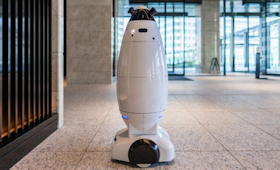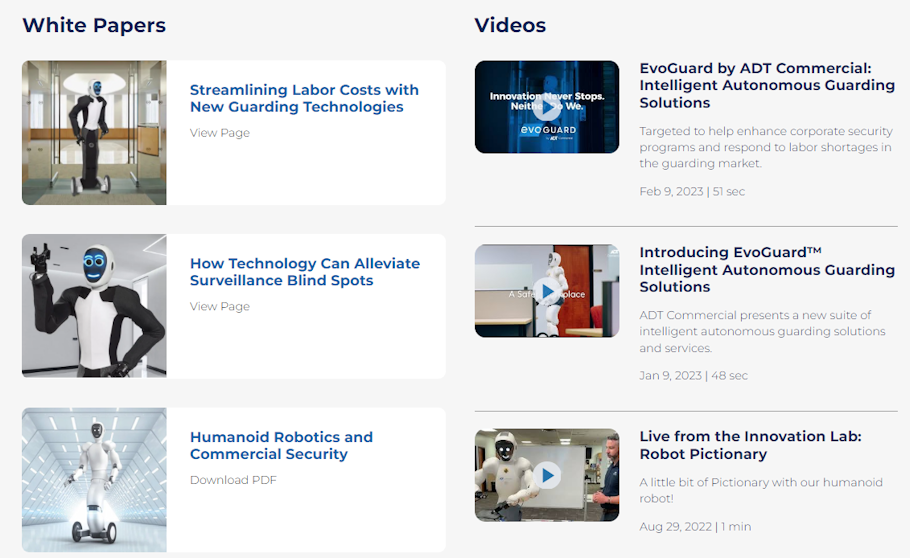|
Robots Replacing Human Security Guards Amid Worker Shortage
Facing a dearth of workers, security firms are looking for robot replacements.
 As
ADT’s Vice President of
Emerging Technologies
Ed Bacco
told the Financial Times (FT) in a
report Sunday (Sept. 24), androids can help the security industry deal with
its ongoing problem of high turnover. As
ADT’s Vice President of
Emerging Technologies
Ed Bacco
told the Financial Times (FT) in a
report Sunday (Sept. 24), androids can help the security industry deal with
its ongoing problem of high turnover.
“We wanted to have more consistency in our guards, and so when I came over to
ADT I saw an opportunity to introduce something to the market,” said Bacco, who
has also worked at Amazon
and for the U.S. Department of Homeland Security.
The report said that the Security Industry Association, the international trade
group, believes a labor shortage is a longtime factor hampering growth within
the industry. In Great Britain, that country’s security trade association
projects there will be a shortfall of more than 60,000 security officers this
year.
According to the FT, ADT Commercial has invested in robotics firm
1X, and is testing 10 of its
humanoid robots at its monitoring center and some customer locations. For
example, one robot is based at ADT’s monitoring center in Dallas, where it
searches for signs of disturbance or intrusion and alerts a human guard equipped
with a VR headset if it detects trouble.
“One of the really big powers of our system … is that when something happens,
we’re able to actually step into the android from a remote location,” 1X chief
executive
Bernt Øivind Børnich told the FT.
“That is one of the major strengths that 1X brings is to be able to operate in
the avatar mode,” said Bacco. “They can be in London … controlling the [robot]
in California.”
 As
PYMNTS has written, labor shortages in other sectors have led businesses to turn
to robots. For example, last month saw reports that
restaurants in Korea had begun using robot servers to offset a lack of human
waitstaff. As
PYMNTS has written, labor shortages in other sectors have led businesses to turn
to robots. For example, last month saw reports that
restaurants in Korea had begun using robot servers to offset a lack of human
waitstaff.
However, there’s evidence that consumers are uninterested in letting robotics
take over their dining experience. PYMNTS’ exclusive report, “Connected
Dining: The Robot Will Take Your Order Now” based on a survey of nearly
2,000 U.S. consumers — found that 33% of men are interested in visiting a
restaurant that uses robotics, a figure that drops to 17% among women.
In that survey, consumers pointed to concerns about automation making the
restaurant experience more impersonal. They also cited worries about
job losses for human workers, about decreased accuracy and about privacy and
safety.
Article originally posted on
pymnts.com
See More EvoGuard Resources
Below

Click here
to learn more
|